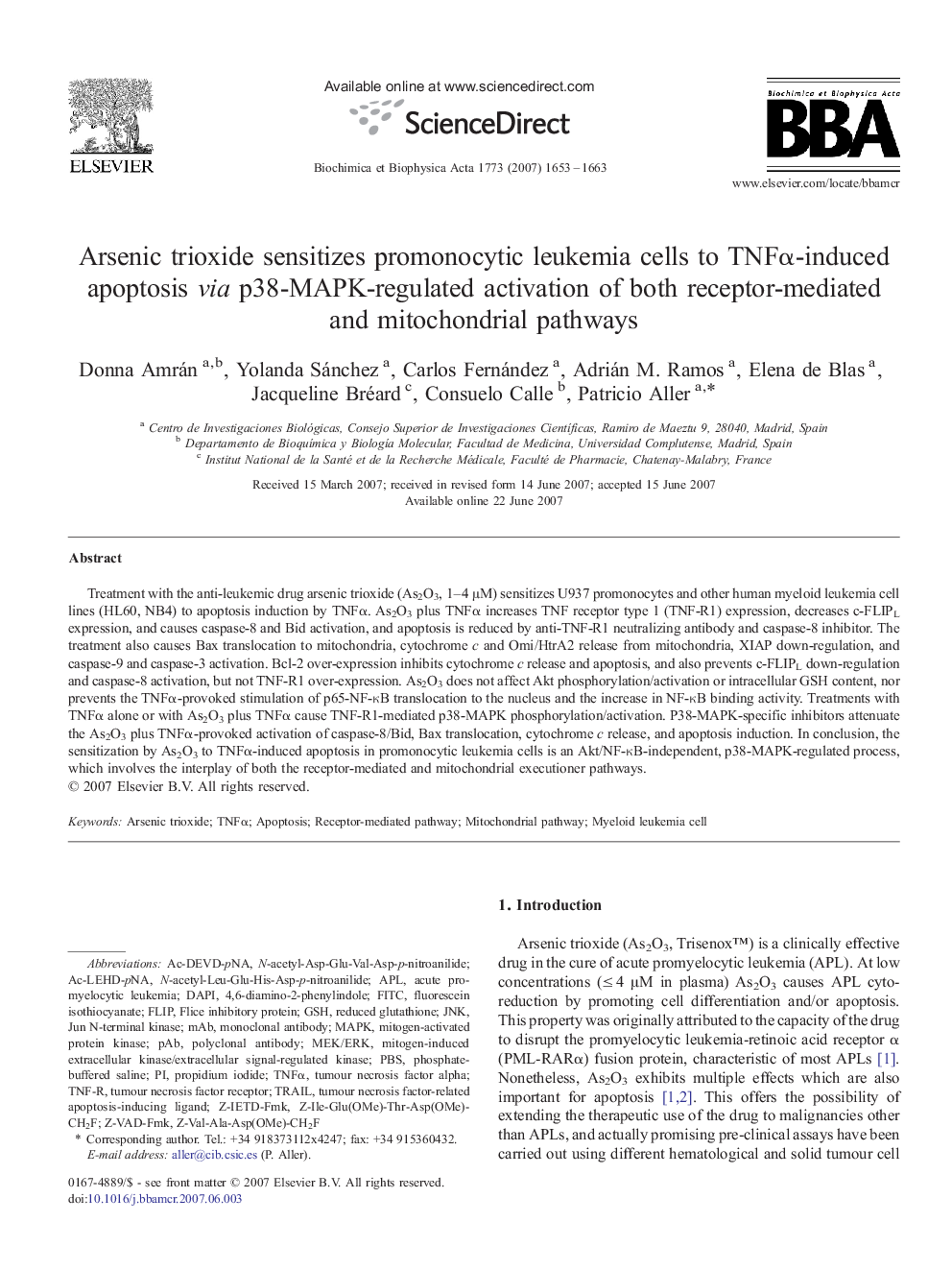| Article ID | Journal | Published Year | Pages | File Type |
|---|---|---|---|---|
| 1951574 | Biochimica et Biophysica Acta (BBA) - Molecular Cell Research | 2007 | 11 Pages |
Treatment with the anti-leukemic drug arsenic trioxide (As2O3, 1–4 μM) sensitizes U937 promonocytes and other human myeloid leukemia cell lines (HL60, NB4) to apoptosis induction by TNFα. As2O3 plus TNFα increases TNF receptor type 1 (TNF-R1) expression, decreases c-FLIPL expression, and causes caspase-8 and Bid activation, and apoptosis is reduced by anti-TNF-R1 neutralizing antibody and caspase-8 inhibitor. The treatment also causes Bax translocation to mitochondria, cytochrome c and Omi/HtrA2 release from mitochondria, XIAP down-regulation, and caspase-9 and caspase-3 activation. Bcl-2 over-expression inhibits cytochrome c release and apoptosis, and also prevents c-FLIPL down-regulation and caspase-8 activation, but not TNF-R1 over-expression. As2O3 does not affect Akt phosphorylation/activation or intracellular GSH content, nor prevents the TNFα-provoked stimulation of p65-NF-κB translocation to the nucleus and the increase in NF-κB binding activity. Treatments with TNFα alone or with As2O3 plus TNFα cause TNF-R1-mediated p38-MAPK phosphorylation/activation. P38-MAPK-specific inhibitors attenuate the As2O3 plus TNFα-provoked activation of caspase-8/Bid, Bax translocation, cytochrome c release, and apoptosis induction. In conclusion, the sensitization by As2O3 to TNFα-induced apoptosis in promonocytic leukemia cells is an Akt/NF-κB-independent, p38-MAPK-regulated process, which involves the interplay of both the receptor-mediated and mitochondrial executioner pathways.
